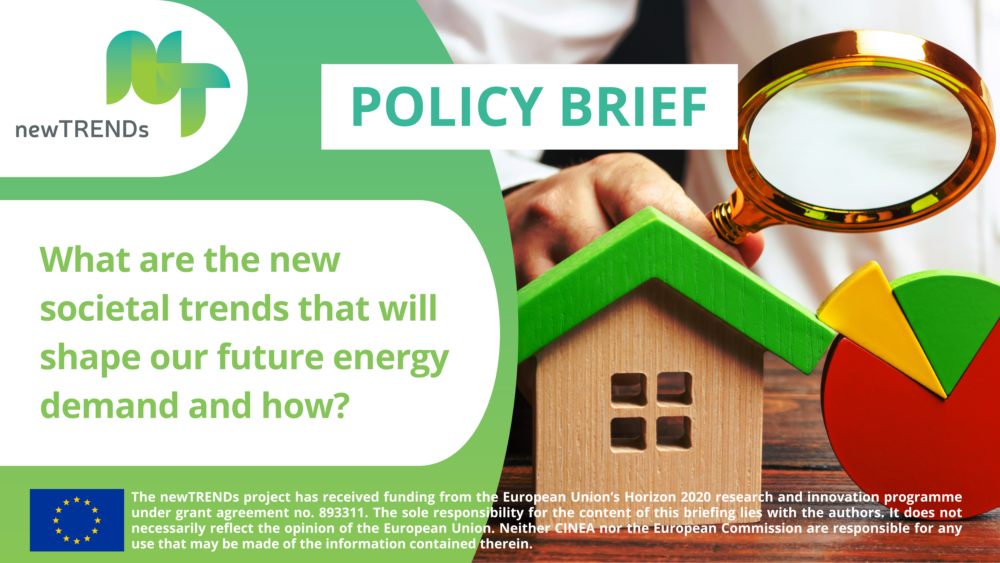What are new societal trends and why do we need to understand them?
New societal trends can be understood as emerging aspects of our dynamic, interrelated societies− unpredictable in both their individual and collective impact. They can be economic, political, environmental, cultural and social in nature, and can have a significant influence on the European future energy consumption as well as the cross-sectoral demand shifts.
The new societal trends are not simply an extrapolation of trends already observed (“continuous or linear trends”) but can gain momentum if embraced by larger parts of society or after reaching a certain threshold (“disruptive or non-linear trends”).
Achieving the EU long-term climate goals will require continued progress towards a low-carbon society, with both technological and non-technological factors influencing the success of national and regional energy and climate targets.
Currently, national low-carbon energy scenarios up to 2050, developed in European countries, consider the overall social context of the energy transition (e.g., population, average living standards, education levels, etc.). However, non-technological factors influencing energy demand are often not yet included in these scenarios.
Further progress is needed to improve the empirical basis for new societal trends and their representation in models and policies, especially on the demand side.
In addition, little research has been done on how new societal trends can impact opposite directions at the same time (i.e., reducing and increasing energy demand simultaneously), and how they can reinforce or contradict each other.
To fill this gap, the EU-funded project newTRENDs has identified the potential new societal trends that may influence future European energy demand, assessed their potential to influence change, integrated these assessments into relevant demand-side models for quantitative analysis in scenario development, and analysed their relevance for policy making.
KEY MESSAGES
- Identifying the new societal trends which will have an impact on the future energy demand is essential for a complete picture in national and EU energy scenarios.
- The identified new societal trend clusters and narratives will inform the understanding of changes in energy demand, which are not linear extrapolations of historical trends.
- The identified new societal trend clusters and narratives will improve energy demand models often used to model European long-term scenarios.
- Through an in-depth examination of new societal trend clusters, the newTRENDs H2020-funded project has analysed how such trends may influence future European energy demand and how they can be integrated into relevant demand-side models.
- The new societal trends can have a low, medium or high impact on the energy demand, at micro, meso and macro levels and in a linear or disruptive way.
- Additional aspects (e.g. sufficiency matters, uncertainties, cross-impact and cross-sectoral analysis) should be considered for a comprehensive picture of the influence of new societal trends on future energy demand.
- Different aspects of how the new societal trends influence future energy demand (controversial impacts, disruptiveness, and interlinkages) need to be considered in policy making to design effective policies that contribute to achieving the EU climate goals.
- The interlinkages between the new societal trends lead to overlapping policy fields and therefore require a new style of policy making beyond the traditional policy arenas, fully accounting for the inter-dependencies of the trends.



Comments are closed.